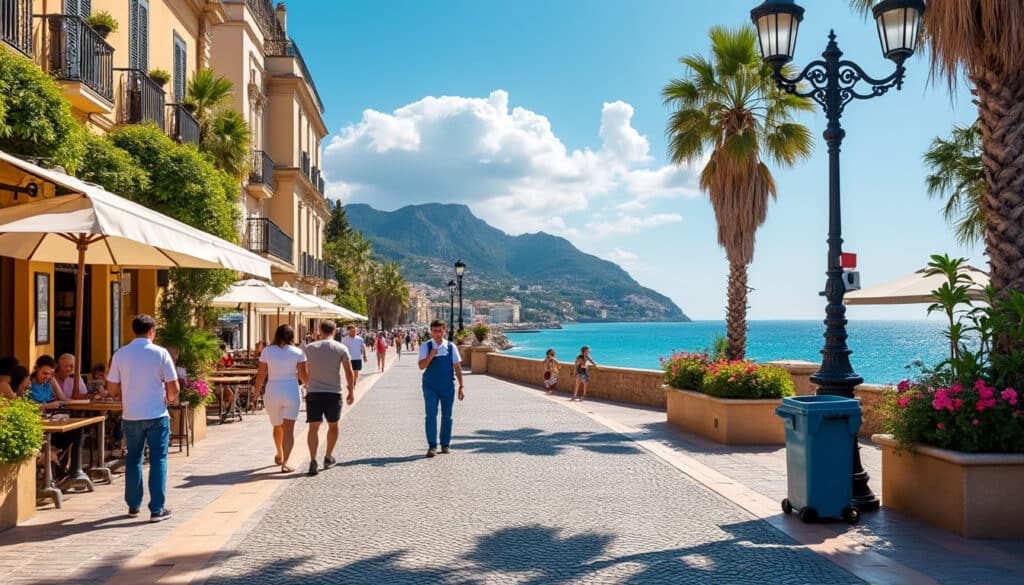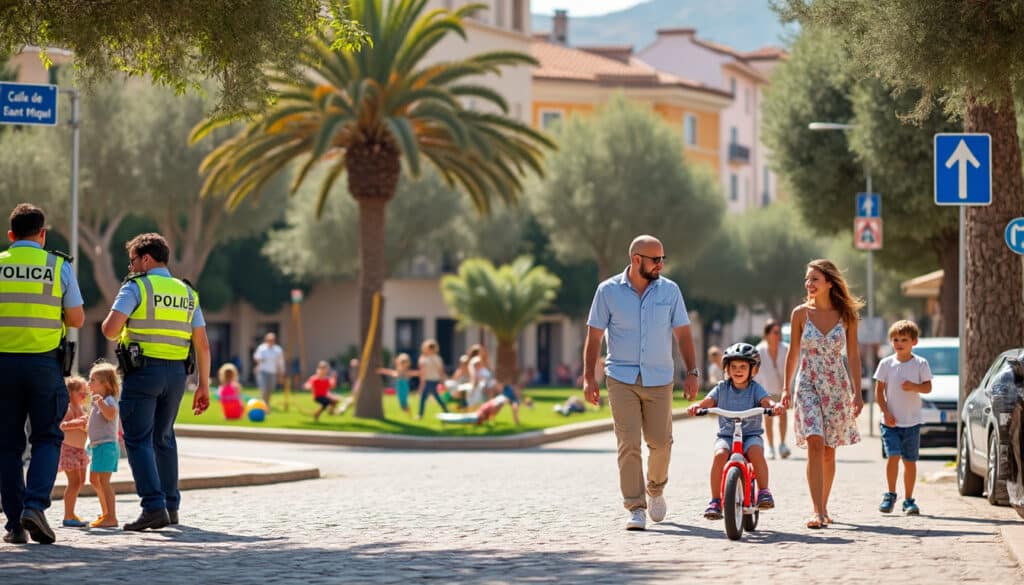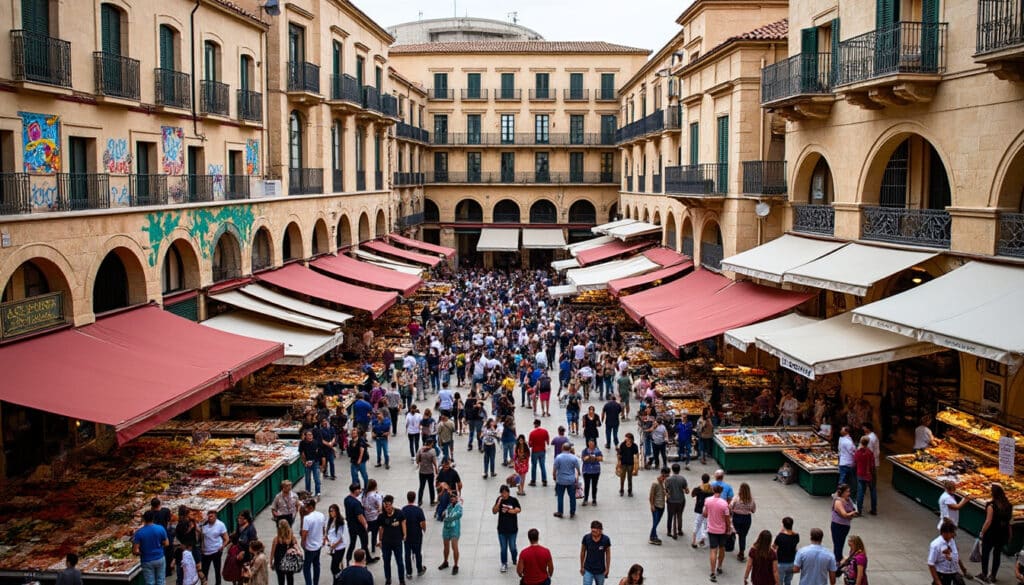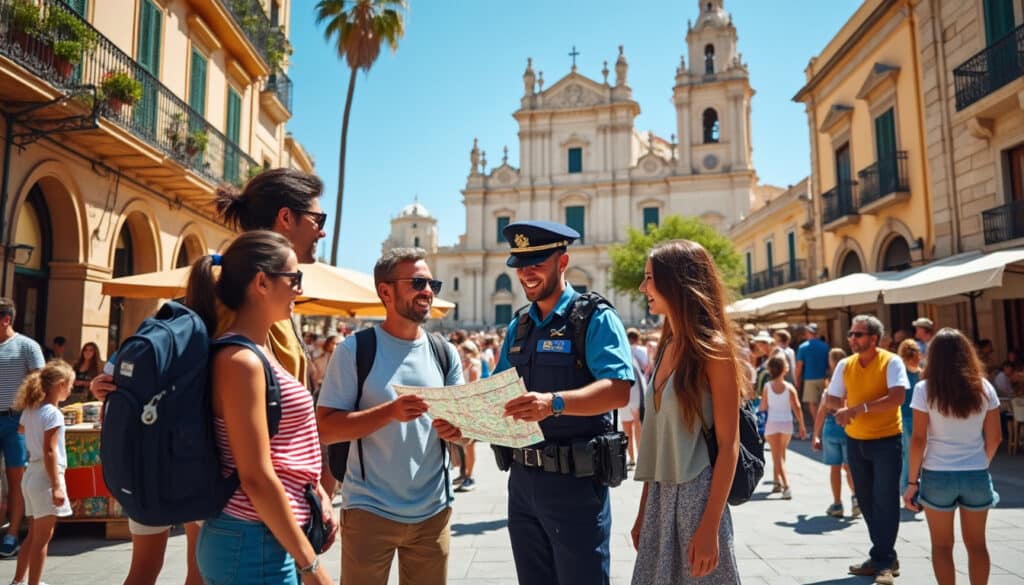Recently, the picturesque streets of Palma de Mallorca have witnessed swelling waves of social unrest and protests. This Mediterranean gem, typically celebrated for its turquoise waters and vibrant culture, is finding itself at the heart of a movement that’s striking chords far beyond its shores. As the tourism sector faces scrutiny, locals voice concerns about the sustainability of visitor influx and its spiraling effects on everyday life. It’s a complex blend of economic dependency and social identity, creating a conversation that is echoing across Europe and prompting both admiration and concern.
The Rise of Tourist Protests in Palma de Mallorca
Mallorca has long been the idyllic vacation spot for travelers from around the globe, famous for its sun-drenched beaches and charming villages. Yet, beneath the palm-lined avenues of Palma, a different story is unfolding. The frustration of residents, branded as the “Palma Unrest Collective”, has been simmering over what they call “over-tourism”. This movement has been spearheaded by groups such as Mallorca Voices, Island Activists, and Youth for Change, each calling for a recalibration of how tourism affects the island.
At the heart of the matter are palpable effects of tourism on local life. For instance, the escalating housing crisis sees families being squeezed out of neighborhoods they’ve called home for generations. Many locals are quick to point out that what was once affordable has become the domain of short-term rentals and luxury accommodations aimed at tourists. The result? A city where it’s becoming increasingly difficult for residents to find reasonable housing.
Another dimension to this unrest is found in environmental concerns. With thousands of cruise ship passengers disembarking daily, questions of sustainability are louder than ever before. Many worry about the environmental impact beyond mere foot traffic—fragile ecosystems face the pressure of an overwhelming human footprint.
Recent data corroborates these fears: Mallorca Solidarity Network figures reveal an increase in pollution levels during peak tourist seasons, leading to calls for stricter regulations. The palpable sense of urgency in these protests is encapsulated by empassioned visuals from groups like the Palma Protest Hub, urging for “limits on tourism”.
- 🏠 Establishing affordable housing initiatives.
- 💡 Enforcing strict environmental regulations.
- 🚢 Limiting the number of cruises docking daily.
The Impact of Cruise Ships and the Island’s Response
One of the more visible flashpoints in this struggle is the impact of cruise ships. Often dubbed the floating hotels, these massive vessels bring an influx of temporary visitors but leave behind permanent challenges for inhabitants. Notably, residents and environmental activists are contesting their role in exacerbating pollution and congesting the island’s resources.

In response, some cruise operators have reacted by removing Palma from their itineraries altogether, opting for alternative Mediterranean ports such as Valletta or Barcelona. Prominent voices like Pedro Fiol from the Mallorca Resistance argue that this could serve as a double-edged sword. While it may reduce congestion, it also impacts local businesses reliant on tourist patronage during the low season.
The local government is not taking these concerns lightly. Proposed measures by Palma’s MES per Palma party include limiting the arrival of such vessels to a maximum of two per day, with no more than 6,000 passengers in total. This policy, while controversial, aims to strike a balance between economic dependency and maintaining sustainable tourism levels.
| Proposed Measure | Expected Impact | Community Reaction |
|---|---|---|
| Limit Cruise Arrivals | Reduce congestion | Mixed opinions; some economic fear |
| Housing Initiatives | Boost availability | Broad support |
| Environmental Policies | Enhance sustainability | Strong support from environmentalists |
A Voice for the Locals: Social Justice in Mallorca
For Palma’s residents, this movement represents more than just protest signs and catchy slogans—it’s a broader call for social justice and equality. The protests are supported by networks like Social Justice Mallorca and Mallorca Solidarity Network, focusing on equipping locals with a platform to express their grievances.
The Palma Protest Hub, in particular, has been effective in organizing peaceful demonstrations that bring together diverse segments of society. These include university students, retirees, and families, all united under a banner of seeking a balanced coexistence between locals and tourists. The group’s energy stems from a genuine love for their island, striving not to diminish tourism, but to coexist in a mutually beneficial manner.
A recurring theme is the notion of “balance”. As Alex of the Voices of Mallorca aptly puts it, “This isn’t anti-tourist, it’s pro-community.” This sentiment echoes the resolve of many to address rising housing costs and environmental strains without completely shutting out the economic benefits that tourism brings.
Community meetings have become common, where local councils engage directly with residents to discuss policy changes. These gatherings often highlight the ingenuity and resilience of the Mallorquin people, aiming to empower both urban and rural communities through democratic engagement. This approach serves not only to address immediate issues but also to strengthen community bonds and ensure that decisions about the island’s future are inclusive and representational.
The story of the protests in Palma de Mallorca continues to evolve, offering insights into how small communities can confront global challenges. The message is clear: tourism should not disenfranchise locals nor compromise their quality of life.
Economic Dimensions: Between Tourism Revenue and Local Welfare
While the protests primarily paint a picture of resistance, the economic dimension cannot be overlooked. Tourism, contributing significantly to Mallorca’s GDP, is a vital part of the island’s financial health. This dichotomy is central to the debate on finding a sustainable path forward.
The local economy’s dependence on tourism can be likened to a double-edged sword. On one hand, the industry brings substantial revenue that supports public infrastructure and creates jobs. On the other, it has led to increased property values, often pricing locals out of their ancestral lands and homes, creating a demand for urgent reforms.
It’s not just about economics; it’s about identity. The recent rapid changes have residents questioning the very essence of what Mallorca stands for. Does the island aim to be a luxury hotspot or a mosaic of vibrant local cultures? This ongoing shift points towards the need for strategic planning that includes input from all societal layers.
- ⚖️ Balancing tourist numbers with ecological sustainability.
- 🏛️ Supporting local businesses while ensuring fair competition.
- 🗺️ Promoting cultural preservation alongside economic growth.
There is hope that with planning and dialogue, Palma can harmonize tourism-driven revenue with societal welfare, setting an example of modern resilience for other tourist-centric economies facing similar predicaments.
Looking Ahead: Future Perspectives
As we cast our gaze forward, the dynamics of protests and subsequent changes in Palma de Mallorca promise to bring new narratives. The island is at a crossroads, where decisions taken today will sculpt its identity for years to come. Empowerment initiatives like Empower Palma and grassroots formations continue to ignite meaningful dialogues, offering residents an influential voice in shaping their community.
Efforts to craft innovative policies speak volumes of the collective spirit that fuels the Palma unrest phenomenon. From measures aimed at equitable housing to incorporating sustainable tourism practices, the community stands united in its aspirations for change. Neighboring regions and even international observers look towards Mallorca as a case study in managing growth thoughtfully.
In this evolving story, interaction between the government, community stakeholders, and the global tourism industry will prove crucial. It will be interesting to see how policymakers integrate unique ideas from initiatives like the Mallorca Resistance into feasible, strategic plans that will unfold in the coming years.
Ultimately, the resilient spirit of Mallorca’s residents hints at a future where solidarity and innovation will define the island’s destiny. The unity displayed here may encourage similar movements worldwide, challenging establishments to rethink tourism economics in today’s global age.
FAQ Section:
| Question | Answer |
|---|---|
| What is the main cause of the protests in Palma de Mallorca? | The protests mainly address issues of over-tourism, housing affordability, and environmental sustainability. |
| Will the protests affect my upcoming holiday to Mallorca? | No, the protests are localized and have not affected tourist resorts. They aim to create awareness rather than disrupt tourism. |
| Why are cruise ships a focus in these discussions? | Cruise ships are seen as contributing to overcrowding and environmental concerns, leading to calls for regulated arrivals. |

Safety Tips for Palma de Mallorca
Palma de Mallorca, the sun-kissed jewel of the Balearic Islands, offers travelers a perfect fusion of sandy beaches, rich history, and vibrant nightlife. With millions flocking to its shores each year, ensuring safety remains a top priority for visitors eager…

Cleanliness and hygiene in Palma de Mallorca
From stunning sandy beaches to vibrant cultural festivals, Palma de Mallorca is a Mediterranean dream for many travelers. However, beneath its sun-kissed facade, cleanliness and hygiene hold a prominent place in shaping visitors’ experiences and residents’ day-to-day life. Understanding the…

General safety in Palma de Mallorca
When thinking about a destination for a serene beach holiday with a splash of fun adventures, Palma de Mallorca often tops the lists of many travelers. This Balearic beauty is renowned for its enchanting beaches, vibrant nightlife, and picturesque towns.…

Pickpocketing and theft in Palma de Mallorca
Ah, Palma de Mallorca—a sun-drenched paradise brimming with history, cultural allure, and oh yes, the occasional unwelcome surprise of pickpocketing and theft. It’s the kind of place that enchants tourists with its vibrant markets, historic architecture, and sandy beaches, but…

Safety in Palma de Mallorca for travelers from different countries
Ah, Palma de Mallorca – where the sun-kissed beaches meet historic charm, creating a dreamy destination for travelers from every corner of the globe! As you stroll through the picturesque streets of Palma, sipping on your café con leche, it’s…

Transport safety in Palma de Mallorca
Ah, the enchanting Palma de Mallorca! Known for its sun-kissed beaches, vibrant nightlife, and a tantalizing platter of Mediterranean cuisine, it’s also crucial for visitors and residents alike to ponder the important topic of transport safety in this picturesque island…

